How Are Cryptocurrency Rewards Taxed?
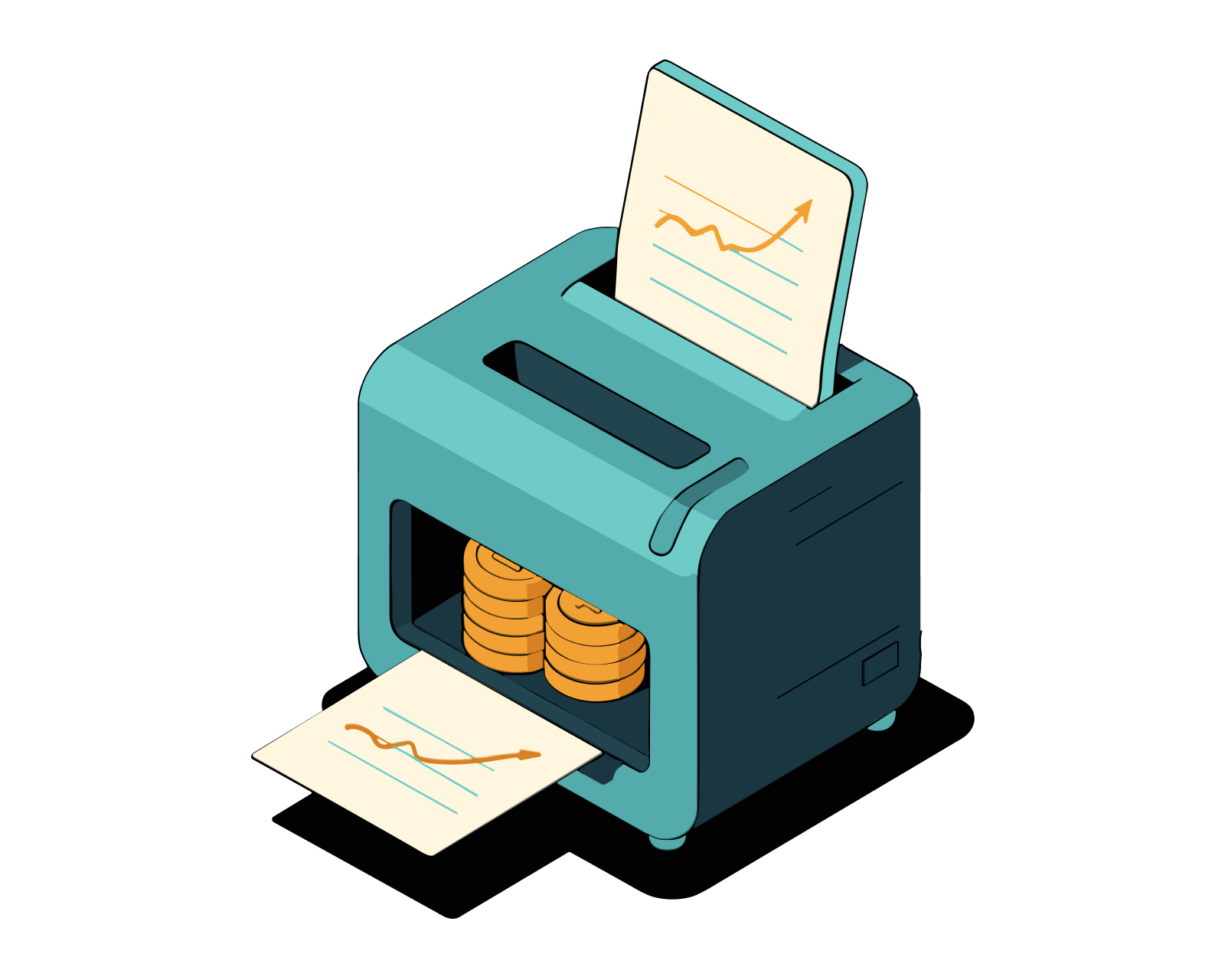
Table of Contents
- Overview
- Understanding Cryptocurrency Rewards
- Tax Authorities and Crypto Reward Guidance
- Taxable Events for Crypto Rewards
- Income vs. Capital Gains
- Reporting Cryptocurrency Rewards for Individuals
- Cryptocurrency Rewards for Businesses
- Staking Rewards
- Mining Rewards
- Liquidity Mining and Yield Farming
- Referral and Affiliate Rewards
- NFT and Tokenized Rewards
- Cross-Border Tax Considerations
- Losses, Write-Offs, and Tax Planning
- Common Mistakes and Audit Risks
- Voluntary Disclosure and Correcting Past Mistakes
- Tax Software and Tracking Tools
- Tax-Advantaged Strategies for Crypto Reward Investors
- Future of Crypto Reward Taxation
- Case Studies
- Conclusion
Overview
Cryptocurrency rewards have emerged as one of the most dynamic and attractive aspects of the digital asset ecosystem. Unlike traditional investments that generate interest or dividends in fiat currencies, crypto rewards offer innovative methods for participants to earn digital assets while engaging with decentralized networks or blockchain projects. From staking rewards that compensate network validators to yield farming incentives in decentralized finance (DeFi) platforms, these rewards are creating entirely new opportunities for wealth generation.
The growing popularity of cryptocurrency rewards is fueled by several factors. First, blockchain networks are increasingly adopting mechanisms that encourage participation through token incentives. Staking and mining provide passive income streams for holders and operators, while liquidity mining and yield farming encourage users to provide capital to decentralized protocols. Second, businesses are increasingly offering tokenized referral programs or incentive structures to drive engagement. These innovations blur the line between investing and active participation in blockchain ecosystems, making crypto rewards an essential component of modern digital finance.
However, alongside these opportunities comes the critical responsibility of tax compliance. Cryptocurrency reward taxation is often complex due to the diverse nature of rewards, their timing, and the regulatory environment. Unlike conventional investments, rewards are often received in multiple digital assets, across different chains, and sometimes through decentralized platforms where transaction records are less standardized. Understanding how these rewards are taxed is essential for investors, traders, and businesses to avoid compliance issues, penalties, or inadvertent reporting errors.
Types of crypto rewards include:
-
Staking rewards – Earned by locking or delegating cryptocurrency to support network operations.
-
Mining rewards – Generated through network validation processes, such as proof-of-work mining, where miners earn tokens for block creation.
-
Airdrops – Tokens distributed as promotional incentives or as part of project governance.
-
Liquidity mining and yield farming – Rewards earned by providing liquidity to decentralized finance protocols.
-
Referral bonuses – Incentives received for promoting platforms or attracting new users.
-
Tokenized incentive programs – Includes rewards tied to user engagement, platform usage, or participation in governance mechanisms.
These reward mechanisms differ significantly from standard crypto transactions such as trading, ICO participation, or NFT acquisition. While buying and selling cryptocurrencies usually triggers capital gains or losses, rewards often generate ordinary income at the time of receipt, calculated based on fair market value. The regulatory landscape is still evolving, with different jurisdictions providing varying levels of guidance on how crypto rewards should be treated for tax purposes.
Globally, regulatory authorities are increasingly focused on cryptocurrency rewards. Countries like the United States, Canada, the United Kingdom, Australia, and members of the European Union have begun issuing guidance for staking, mining, and other reward-based transactions. These authorities emphasize accurate reporting, income recognition at receipt, and maintaining clear records. As the crypto economy expands, the risk of audits and compliance reviews grows, making professional guidance crucial.
Understanding Cryptocurrency Rewards
Cryptocurrency rewards represent any form of digital asset received as compensation, incentive, or benefit within blockchain networks or crypto-related programs. While rewards can be received in a single token type, many users encounter a complex mix of rewards distributed across different assets and platforms, each carrying unique tax implications.
Types of Cryptocurrency Rewards
Staking Rewards
Staking rewards are distributed to participants who lock their cryptocurrency to support proof-of-stake (PoS) blockchain networks. Validators or delegators receive tokens proportional to their contribution to the network. These rewards are typically taxable as ordinary income at the time of receipt, based on the fair market value of the tokens when they are credited to the user’s wallet.
Mining Rewards
Mining rewards, often associated with proof-of-work (PoW) networks like Bitcoin, compensate miners for processing transactions and securing the network. These rewards include newly minted tokens and transaction fees. Mining is generally treated as taxable income, with additional considerations for deductions related to equipment, electricity, and operational costs if conducted as a business.
1. Yield Farming and Liquidity Mining Rewards
Yield farming involves providing liquidity to DeFi protocols in exchange for returns, often in the form of additional tokens. These rewards are taxable upon receipt, and the complexity increases due to multi-token rewards, pool token mechanisms, and impermanent loss adjustments. Accurate tracking and reporting are critical to ensure compliance.
2. Referral Program Rewards
Cryptocurrency platforms often incentivize users to refer others with token rewards. These rewards are typically treated as ordinary income, equivalent to cash compensation, based on the fair market value at the time they are received.
Tokenized Incentive Programs
Some blockchain networks provide rewards tied to platform engagement, governance participation, or milestone achievements. For instance, participating in decentralized governance votes may yield reward tokens, which are generally taxable upon receipt, depending on the jurisdiction.
How Rewards Are Distributed
Rewards can be distributed through centralized exchanges, blockchain platforms, or decentralized protocols. Centralized platforms may provide clear statements for tax reporting, whereas decentralized systems often require users to extract data from the blockchain directly. This distinction affects record-keeping and reporting requirements, highlighting the need for robust tracking systems or software tools for accurate tax compliance.
Taxable vs. Non-Taxable Rewards
Not all rewards are automatically taxable; their tax treatment often depends on:
-
Timing of receipt – Rewards are generally taxable when control over the token is obtained.
-
Type of reward – Mining and staking rewards are typically income, while certain promotional tokens may only trigger capital gains on disposal.
-
Platform and jurisdiction – Regulatory rules vary; some countries may exempt small-value rewards or require reporting only above specific thresholds.
Understanding these distinctions is crucial to avoid underreporting or misclassifying crypto rewards. Improper reporting can lead to audits, penalties, and interest charges, which can significantly impact the net value of rewards earned.
Managing cryptocurrency reward taxation requires specialized knowledge of both digital assets and local tax regulations. Block3 Finance provides expert guidance to ensure that staking, mining, yield farming, and other crypto rewards are accurately reported, compliant with regulations, and optimized for tax efficiency.
Book a free consultation today to receive personalized advice tailored to your crypto reward portfolio and secure your compliance with confidence.
Tax Authorities and Crypto Reward Guidance
Cryptocurrency rewards have drawn the attention of tax authorities worldwide due to the increasing adoption of digital assets and the potential for substantial income generation outside traditional financial systems. Different jurisdictions have developed varying levels of guidance on how rewards should be treated, reflecting differences in regulatory philosophy, enforcement priorities, and definitions of taxable income. For investors, traders, and businesses engaged with staking, mining, yield farming, or other reward programs, understanding local and international tax guidance is crucial for compliance and strategic planning.
1. Overview of Global Regulatory Approaches
United States
The Internal Revenue Service (IRS) treats most cryptocurrency rewards as ordinary income at the time they are received. The IRS distinguishes between different types of rewards:
-
Mining Rewards: Taxable as income based on fair market value at receipt. Miners may deduct associated expenses if operating as a trade or business.
-
Staking Rewards: Similarly treated as ordinary income, often at the time rewards are credited to the user’s wallet.
-
Referral or Incentive Tokens: Taxable as income, similar to compensation.
Taxpayers are required to track each reward transaction, calculate fair market value at receipt, and report accordingly on Form 1040 (Schedule 1 or Schedule C for business).
Canada
The Canada Revenue Agency (CRA) generally treats crypto rewards as income under either business or property categories, depending on the activity:
-
Mining and staking: Considered either business income (if carried on commercially) or property income.
-
Other rewards: Tokens received via DeFi platforms, airdrops, or referral programs may be considered taxable at fair market value upon receipt.
CRA also requires detailed record-keeping for cross-border transactions and foreign-held crypto accounts.
European Union
Tax treatment in EU member states varies but often aligns with income recognition principles. For example:
-
Germany may consider mining and staking rewards as private income with potential capital gains treatment upon disposal.
-
France treats mining as professional income if conducted commercially.
Each member state provides distinct guidance, so compliance may require multi-jurisdiction reporting for active crypto participants.
United Kingdom
Her Majesty’s Revenue & Customs (HMRC) considers crypto rewards taxable as income when received. Mining or staking is treated as self-employment income for individuals, with allowable deductions for expenses directly related to earning the rewards. Rewards received by companies are taxed under corporate income rules.
Singapore and Australia
-
Singapore does not currently impose capital gains tax on crypto but treats rewards earned through commercial activities as taxable income.
-
Australia considers crypto rewards ordinary income upon receipt, with mining rewards, staking, and airdrops subject to the same treatment. Companies may apply deductions for operational expenses.
2. Challenges for Regulators
Despite widespread guidance, several challenges persist:
-
Definition ambiguity: Is staking a hobby or a business? Are DeFi yield farming rewards property or income?
-
Valuation: Fluctuating token prices create difficulties in determining the fair market value at receipt.
-
Cross-border transactions: Participants often receive rewards from platforms headquartered overseas, complicating reporting.
-
Emerging technologies: Governance tokens, NFTs, and fractionalized tokens lack explicit regulatory guidance in most jurisdictions.
3. Emerging Guidance for DeFi and Web3 Rewards
As decentralized finance (DeFi) expands, tax authorities are beginning to address new reward mechanisms:
-
Liquidity mining: Typically considered ordinary income when tokens are credited, with additional capital gains upon disposal.
-
Tokenized governance rewards: Taxable when the token holder gains control.
-
Multi-token ecosystem rewards: Requires record-keeping across various platforms and chains to ensure correct reporting.
Tax authorities globally continue to issue clarifications, but early engagement with a professional advisor ensures compliance while optimizing tax outcomes.
Taxable Events for Crypto Rewards
Understanding when crypto rewards trigger tax liability is essential for proper reporting and compliance. Unlike traditional investments, rewards are often received without an explicit sale or exchange, which can obscure taxable events.
1. When Rewards Are Considered Taxable
Rewards typically become taxable when the recipient gains control over the token. This includes:
-
Tokens credited to a wallet, even if not liquidated.
-
Staking or mining rewards distributed to participants.
-
Tokens received as part of a referral, promotional, or incentive program.
The key factor is constructive receipt, meaning that as soon as a taxpayer can use, sell, or transfer the token, it is considered income.
2. Determining Fair Market Value at Receipt
Taxable income from rewards is calculated based on the fair market value (FMV) at the time of receipt, usually denominated in fiat currency:
-
For coins received on centralized exchanges, FMV is often the exchange price at the timestamp of credit.
-
For DeFi rewards, FMV may need to be determined using the closing market price on the relevant blockchain or a reputable decentralized pricing source.
-
Multi-token rewards require separate FMV calculations for each token type.
Accurate valuation is critical to avoid underreporting income and potential penalties.
3. Rewards vs. Income Recognition
-
Ordinary income: Most staking, mining, and referral rewards are recognized as ordinary income upon receipt.
-
Capital gains: Subsequent sales of the received tokens trigger capital gains or losses, calculated based on the FMV at receipt as the cost basis.
-
Timing implications: Fluctuations in token prices between receipt and sale can significantly impact capital gains outcomes.
4. Staked Rewards, Block Rewards, and Miner Payouts
-
Staked rewards: Taxable when the tokens are credited to the participant’s wallet. Validators must track each issuance.
-
Block rewards (PoW mining): Recognized as income at FMV when received. Deductible operational expenses may reduce net taxable income.
-
Miner payouts: For professional miners, payouts may be treated as business income with potential deductions for electricity, equipment, and pool fees.
5. Rewards in Multi-Token Ecosystems
-
Many DeFi platforms distribute multiple tokens per transaction, sometimes across different chains.
-
Each token may have distinct FMV, reward structure, and taxable treatment.
-
Accurate tracking of each token, including timestamps, platform, and chain, is necessary to ensure correct reporting.
-
Cross-platform reward aggregation tools or crypto tax software are often recommended to manage complex ecosystems efficiently.
Cryptocurrency rewards are lucrative but come with intricate tax obligations that require careful management. Block3 Finance helps investors, traders, and businesses navigate these complexities by providing professional guidance, accurate reporting, and strategic tax planning.
From staking and mining rewards to yield farming and multi-token ecosystems, our experts ensure you remain compliant while optimizing your tax position. Book a free consultation today and take control of your cryptocurrency reward taxation with confidence.
Income vs. Capital Gains
Cryptocurrency rewards can trigger different types of tax obligations depending on how the tokens are received, held, and disposed of. The distinction between ordinary income and capital gains is a critical factor in determining the correct tax treatment. Misclassifying rewards can result in overpayment, underpayment, or even audits.
1. Ordinary Income vs. Capital Gains
-
Ordinary Income: Most cryptocurrency rewards are treated as ordinary income at the time of receipt. This includes mining rewards, staking payouts, and tokens received from referral or incentive programs. The income is recognized at the fair market value (FMV) of the tokens at the time they are credited to the wallet.
-
Capital Gains: Once the tokens are sold, exchanged, or otherwise disposed of, any increase (or decrease) in value from the FMV at receipt to the disposal value is considered a capital gain or loss. Capital gains may be short-term or long-term depending on the holding period.
For example, if an individual receives 10 ETH as staking rewards worth $20,000 at the time of receipt and sells them six months later for $25,000, $20,000 is ordinary income, and the $5,000 appreciation is a short-term capital gain.
2. Differences for Individuals, Traders, and Businesses
-
Individual investors: Most individuals report rewards as ordinary income and subsequent gains as capital gains. They are subject to standard income tax rates for ordinary income and preferential capital gains rates if applicable.
-
High-frequency traders: Individuals who actively trade crypto rewards may be considered engaged in a trading business, potentially treating all gains as ordinary income, which can increase the effective tax rate.
-
Businesses: Corporations or partnerships that earn crypto rewards through operations (e.g., mining farms, staking services) generally treat rewards as business income. This income can be reduced by deductible expenses, including electricity, equipment, software, and staking fees.
3. Short-Term vs. Long-Term Gains
-
Short-term gains: Gains from the sale of crypto rewards held for one year or less are taxed at ordinary income rates in many jurisdictions.
-
Long-term gains: Gains from tokens held longer than one year may qualify for preferential long-term capital gains rates, reducing the effective tax burden.
Holding periods start from the time the token is received (FMV recognized) and end at disposal. Strategic planning is critical for investors seeking to minimize taxes on highly volatile crypto rewards.
4. Case Studies and Examples
-
Case Study 1 – Staking Rewards: An individual stakes 100 ADA tokens in a DeFi pool. Each day, they receive rewards credited to their wallet. The FMV of each reward is recorded daily as ordinary income. When sold, the difference between the FMV at receipt and sale price is reported as capital gains.
-
Case Study 2 – Mining Rewards for Businesses: A small crypto mining operation generates 2 BTC per month. The total FMV at receipt is reported as business income, and electricity, hardware depreciation, and pool fees are deductible. If BTC is sold later, the difference from the FMV at receipt is treated as capital gain.
Reporting Cryptocurrency Rewards for Individuals
Accurate reporting of cryptocurrency rewards is vital to avoid penalties, interest, or audits. Tax authorities globally have emphasized that all rewards received must be reported, even if the tokens are not sold during the tax year.
1. Reporting Reward Income on Personal Tax Returns
-
United States: Cryptocurrency rewards are reported on Form 1040, with business-related rewards reported on Schedule C. Gains from subsequent sales are reported on Schedule D.
-
Canada: CRA requires individuals to report crypto rewards as business or property income, with sales reported separately for capital gains. T1 and Schedule 3 forms are typically used.
-
Other jurisdictions: Most countries treat crypto rewards as taxable income at FMV upon receipt, with subsequent gains treated as capital gains. Documentation requirements may vary.
2. Forms and Schedules Required
-
Form 1040 (US): General reporting of income.
-
Schedule C (US): For self-employment or business-related crypto rewards.
-
Schedule D (US): Reporting capital gains or losses upon sale of crypto rewards.
-
T1 (Canada): Personal income tax return.
-
Schedule 3 (Canada): Capital gains reporting.
-
T1135 (Canada): For reporting foreign-held crypto assets.
3. Reporting Multiple Reward Types in a Single Tax Year
-
Individuals receiving multiple reward types (staking, mining, referral) must track each separately.
-
FMV at the time of receipt for each reward is used as the income basis.
-
Consolidating transactions using spreadsheets or crypto tax software simplifies reporting and reduces errors.
4. Common Mistakes and Pitfalls
-
Failing to report small rewards, assuming they are negligible.
-
Using the wrong FMV or exchange rate at the time of receipt.
-
Misclassifying rewards as capital gains instead of ordinary income.
-
Neglecting cross-border reporting requirements for foreign-held crypto.
Correct and consistent record-keeping is the most effective method to prevent mistakes and reduce audit risk.
Cryptocurrency Rewards for Businesses
Businesses face unique tax implications when receiving crypto rewards, whether as part of their operations, incentives, or participation in blockchain networks. Proper accounting and strategic planning are essential.
1. Accepting Rewards as Payment or Business Income
-
Crypto rewards received in exchange for services, mining, or staking are treated as business income at FMV.
-
Corporations must recognize rewards on the balance sheet and include them in gross income for tax purposes.
-
Partnerships and small businesses follow similar rules, reporting income proportionally to owners or partners.
2. Tax Implications for Corporations, Partnerships, and Small Businesses
-
Corporations: Crypto rewards are included in corporate income and taxed at standard corporate rates. Expenses associated with earning the rewards are deductible.
-
Partnerships: Income flows through to partners, who report their share of rewards on personal returns.
-
Small Businesses: May deduct operational costs (hardware, electricity, staking fees) from gross rewards to determine net taxable income.
3. Deductible Expenses Related to Generating Rewards
Businesses can reduce their taxable income from crypto rewards by deducting legitimate expenses:
-
Hardware costs: Mining rigs, servers, and validators.
-
Software and tools: Wallets, tracking software, and analytics tools.
-
Staking fees: Validator node fees or platform commissions.
-
Electricity and cooling: Costs associated with running mining operations.
-
Professional services: Legal, accounting, or tax consulting fees related to earning crypto rewards.
These deductions reduce the net business income subject to tax, but careful record-keeping is essential.
4. Accounting and Bookkeeping Considerations
-
Revenue recognition: FMV of crypto rewards at receipt is recognized as income.
-
Cost basis tracking: Necessary for calculating capital gains on subsequent disposal.
-
Multi-token ecosystems: Each token should be accounted for separately to accurately report income and gains.
-
Financial statements: Businesses must reconcile crypto assets with traditional accounting records, potentially requiring specialized crypto accounting software.
Correct accounting practices also facilitate audits, support compliance with local tax authorities, and provide a clear picture of profitability for stakeholders.
Cryptocurrency rewards are complex and can significantly impact both individual and business tax obligations. Block3 Finance helps investors, traders, and businesses navigate the intricacies of crypto reward taxation. We provide end-to-end solutions, including income recognition, capital gains tracking, reporting across jurisdictions, and strategic tax planning.
Whether you are staking, mining, or participating in multi-token reward programs, book a free consultation with our experts today to ensure full compliance and optimized tax outcomes.
Staking Rewards
Staking has emerged as one of the most popular ways for crypto holders to earn passive income. By locking tokens in a blockchain network to support operations such as transaction validation and network security, users receive staking rewards, typically denominated in the same token they staked or a network-specific reward token.
1. How Staking Rewards Are Taxed
-
Staking rewards are generally taxable as ordinary income at the fair market value (FMV) when received.
-
Tax treatment depends on the jurisdiction:
United States: IRS treats staking rewards as income, even if tokens are not withdrawn or sold.
Canada: CRA views staking rewards as income at the time of receipt; the classification may be business or property income depending on the frequency and scale of staking.
EU and UK: Typically treated as income; however, certain jurisdictions may allow deferral until disposal depending on local guidance.
- The FMV of the tokens is measured at the time they are credited to the wallet. If rewards are automatically compounded, each new reward issuance is separately recognized as income.
2. Timing of Income Recognition for Staking Rewards
-
Receipt vs. Withdrawal: Income is recognized when the reward is credited, not when it is sold.
-
Re-staking or auto-compounding: Each additional reward earned from reinvested staking should be considered separate income. Learn more about re-staking.
-
DeFi platforms: Some DeFi protocols distribute staking rewards continuously (per block), while others credit periodically (daily or weekly). Taxpayers must track FMV at each credited interval.
3. DeFi vs. Centralized Staking Platforms
-
Centralized exchanges: Often provide a statement or summary of staking rewards, simplifying record-keeping and FMV determination.
-
DeFi platforms: Require manual tracking or integration with third-party software due to the decentralized nature and multiple wallet addresses.
Example: Staking ADA on a centralized exchange vs. staking ETH in a DeFi smart contract - both are taxable at receipt, but tracking FMV for DeFi rewards may involve multiple wallets and chain explorers.
4. Reporting Staking Rewards in Multiple Wallets and Chains
-
Maintaining consistent records across wallets is critical. Use ledger software, spreadsheets, or crypto tax software.
-
Cross-chain staking: When rewards are credited on different blockchains, convert the FMV to your local fiat currency at the time of receipt.
-
Practical tip: Document wallet addresses, transaction IDs, token amounts, FMV at receipt, and staking duration to simplify audit defense and reporting.
Mining Rewards
Mining remains a fundamental way to earn crypto, but it presents unique tax implications for individuals and businesses.
1. Tax Treatment of Mining Rewards
-
Mining rewards are considered ordinary income at FMV on the date received.
-
For individuals: Rewards may be classified as hobby income (if casual) or business income (if frequent/profitable).
-
For businesses: Mining rewards are treated as business income, fully taxable at corporate rates.
-
Capital gains: If mined tokens are later sold, any appreciation from FMV at receipt to sale value is considered a capital gain.
2. Expense Deductions for Mining Operations
-
Individuals: Some jurisdictions allow partial deductions for hobby miners, but generally limited.
-
Businesses: Deductible expenses can include:
-
Hardware (mining rigs, GPUs, ASICs)
-
Electricity and cooling costs
-
Mining pool fees
-
Software and wallets
-
Internet costs
-
-
Expense deduction rules vary by jurisdiction; consult local guidance to ensure compliance.
3. Mining Pools vs. Solo Mining: Implications for Reporting
-
Solo mining: Rewards are straightforward—income recognized when a block is successfully mined.
-
Mining pools: Rewards are distributed proportionally to pool participants, often in multiple smaller transactions. Each reward must be recognized separately, increasing reporting complexity.
-
Record-keeping must track pool contributions, reward splits, and FMV at receipt to avoid underreporting income.
4. Examples and Case Studies
-
Case 1 – Individual Miner: Alice mines 0.5 BTC in one month using a home rig. BTC FMV at receipt is $25,000; she reports $25,000 as income. Expenses of $1,500 for electricity are deducted if allowed.
-
Case 2 – Business Miner: Crypto Mining LLC mines 10 ETH per month. FMV at receipt is $30,000. Deductible expenses include $5,000 for hardware depreciation, $2,000 for electricity, and $1,000 for pool fees. Net taxable income = $22,000.
Liquidity Mining and Yield Farming
Liquidity mining and yield farming are advanced DeFi strategies that reward participants for providing capital to decentralized exchanges (DEXs) or lending protocols.
1. Understanding Yield Farming and Liquidity Rewards
-
Liquidity mining: Users provide tokens to a liquidity pool and earn rewards, often in the form of platform-native tokens.
-
Yield farming: Similar to liquidity mining but often involves multiple strategies to maximize returns using leveraged pools or token reinvestment.
-
Rewards may be denominated in the original token, platform token, or additional incentive tokens.
2. Taxable Events: Rewards, Impermanent Loss, and Pool Token Withdrawals
-
Reward tokens: Taxable as ordinary income at FMV at the time received.
-
Impermanent loss: Typically not immediately taxable, but affects cost basis when liquidity tokens are withdrawn and underlying assets are realized.
-
Pool token withdrawals: When liquidity tokens are redeemed, any gains or losses relative to initial contributions are treated as capital gains.
Complex DeFi transactions may generate multiple taxable events, making accurate tracking essential.
3. Cross-Chain Liquidity Considerations
-
Liquidity may be provided across multiple blockchains (Ethereum, Binance Smart Chain, Solana).
-
Each reward, transaction, or pool withdrawal must be tracked separately, with FMV converted to the local fiat currency.
-
Failure to track cross-chain transactions can result in unreported income or miscalculated capital gains, increasing audit risk.
4. Integration of Automated Reporting Tools for DeFi Rewards
-
Crypto tax software: Tools like Koinly, CoinTracker, and TokenTax can import transactions from multiple chains and wallets.
-
Automated reporting: Helps aggregate rewards, staking, yield farming, and DeFi transactions into a single, tax-compliant report.
-
Manual tracking: Feasible for small portfolios but can be error-prone for complex multi-chain, multi-reward strategies.
Referral and Affiliate Rewards
Cryptocurrency referral programs and affiliate incentives are increasingly popular mechanisms used by exchanges, DeFi protocols, and Web3 projects to attract new users.
These rewards are often distributed in native tokens, platform tokens, or stablecoins, creating unique tax implications for participants.
1. Tax Implications of Referral Program Rewards
-
Referral and affiliate rewards are generally treated as ordinary income at the time of receipt, regardless of whether they are in crypto or fiat.
-
Tax treatment varies by jurisdiction:
-
United States: IRS guidance categorizes earned crypto tokens from referral programs as taxable income at FMV on the date received.
-
Canada: CRA treats these rewards as taxable income under property or business income rules depending on whether the activity is a casual referral or a systematic business effort.
-
-
If referral rewards are earned as part of a business activity, participants may also deduct associated expenses, such as marketing costs or promotional materials.
2. Reporting Earned Tokens vs. Fiat Equivalents
-
For each reward received, record:
-
The type of token or cryptocurrency
-
Date of receipt
-
FMV in your local currency at the time of receipt
-
-
Even if tokens are held without conversion to fiat, income is still recognized at receipt.
-
Example: Receiving 50 XYZ tokens valued at $200 on the day credited constitutes $200 of taxable income.
3. Record-Keeping Best Practices
-
Maintain a centralized ledger or use crypto tax software to track rewards from multiple platforms.
-
Include: transaction IDs, platform details, wallet addresses, date/time, token amounts, and FMV at receipt.
-
For high-volume referral programs, automated tracking and periodic reconciliations are critical to avoid reporting errors.
NFT and Tokenized Rewards
NFTs (non-fungible tokens) and other tokenized assets increasingly serve as incentive mechanisms, particularly in gaming, metaverse projects, and loyalty programs. Their tax treatment is more complex due to their unique nature and lack of fungibility.
1. Rewards in NFT Form and Tax Treatment
-
NFTs received as rewards are treated as ordinary income at FMV at the time of receipt.
-
If the NFT is later sold or traded, capital gains tax applies on the difference between FMV at receipt and sale price.
-
Example: Alice receives an NFT valued at $1,500 as a reward; she later sells it for $2,000. She reports $1,500 as ordinary income and $500 as a capital gain.
2. Cross-Border Considerations for NFT-Based Rewards
-
Receiving NFTs from foreign platforms may trigger additional reporting obligations, such as:
-
FBAR or FATCA in the US for accounts above reporting thresholds
-
T1135 in Canada for specified foreign property
-
-
Accurate valuation in the local currency is essential, especially for cross-chain or multi-platform NFT rewards.
3. Staking or Farming NFTs: Additional Tax Complexities
-
Some protocols allow NFTs to be staked or used in yield-generating mechanisms, creating new layers of taxable events.
-
Income recognition occurs when rewards are earned, even if reinvested automatically into new NFTs or tokens.
-
Participants must track: staking start and end dates, earned rewards, FMV at receipt, and subsequent transactions to correctly report income and capital gains.
Cross-Border Tax Considerations
Global crypto rewards add significant complexity, as users often earn tokens from platforms or protocols operating in different jurisdictions.
1. Receiving Crypto Rewards from Foreign Platforms
-
Foreign-based exchanges and DeFi protocols may issue rewards that must still be reported in your home country.
-
Jurisdictions may differ in recognizing when income is taxable: at the point of receipt, conversion to local currency, or subsequent sale.
-
Failure to report cross-border rewards can lead to severe penalties and interest.
2. Reporting Foreign Accounts: FBAR, FATCA, CRA T1135
-
United States: Taxpayers must report foreign accounts exceeding $10,000 under FBAR rules; crypto wallets may require reporting if held on foreign exchanges. FATCA (Form 8938) may also apply.
-
Canada: T1135 requires reporting of specified foreign property over CAD 100,000, including crypto held on foreign platforms.
-
Maintaining a comprehensive record of wallet addresses, platform locations, and FMV is critical for compliance.
3. Double Taxation and Treaty Benefits
-
Some countries provide tax treaties that prevent double taxation of foreign-earned income.
-
Proper documentation and election of treaty provisions can reduce or eliminate tax liability on cross-border crypto rewards.
-
Example: A Canadian resident earning rewards on a US-based platform may claim foreign tax credits for US taxes withheld.
4. Multi-Jurisdictional Compliance Challenges
-
High-volume participants operating in multiple countries face:
-
Varying definitions of taxable events
-
Different treatment of staking, mining, and yield rewards
-
Complex currency conversion rules for income reporting
-
-
Using multi-jurisdictional crypto tax software or consulting international tax professionals is strongly advised.
Losses, Write-Offs, and Tax Planning
Strategically managing gains and losses from cryptocurrency rewards is a critical component of effective tax planning.
1. Using Losses to Offset Gains
-
Losses from selling rewarded crypto tokens can offset gains from other crypto transactions.
-
For example, if a staking reward token appreciated by $1,000 but another sold reward token incurred a $400 loss, net taxable gain = $600.
2. Tax-Loss Harvesting Strategies
-
Tax-loss harvesting involves selling tokens at a loss to offset other gains, then potentially repurchasing similar tokens.
-
Care must be taken to comply with wash-sale rules, where applicable, to avoid disallowed deductions.
-
Effective for high-volume reward participants seeking to minimize overall tax liability.
3. Carrying Forward Losses
-
In many jurisdictions, excess losses can be carried forward to future tax years, reducing future taxable gains.
-
Keeping meticulous records of the initial FMV at reward receipt, subsequent sales, and realized losses ensures proper application of carryforward rules.
4. Strategic Planning for High-Volume Crypto Reward Participants
-
Participants receiving rewards across multiple chains or platforms should:
Consolidate reporting for all types of rewards
Track cost basis, FMV at receipt, and gains/losses accurately
Consider entity structuring (LLC, corporation, or trust) to optimize tax treatment -
Regular consultation with a crypto tax professional is essential for mitigating audit risks and ensuring compliance with evolving regulations.
Common Mistakes and Audit Risks
Cryptocurrency rewards offer significant opportunities, but they also carry complex tax responsibilities. Many investors and businesses make errors that can trigger audits or result in penalties. Understanding common mistakes and audit risks is critical for compliance and financial planning.
1. Failing to Report Crypto Rewards
-
One of the most common mistakes is omitting crypto rewards from tax returns.
-
This includes staking rewards, mining income, airdrops, yield farming distributions, referral tokens, and NFT-based incentives.
-
Failure to report even small amounts can raise red flags with tax authorities, as blockchain transactions are increasingly monitored through reporting agreements with exchanges.
-
Example: Alice receives $5,000 worth of staking rewards across multiple wallets but only reports the ones converted to fiat. The unreported $3,000 worth of rewards could trigger an audit if detected.
2. Misclassifying Income vs. Capital Gains
-
Crypto rewards can be treated as ordinary income at receipt but may later generate capital gains upon sale. Misclassifying these transactions is a frequent error.
-
Some participants mistakenly report all crypto transactions as capital gains, ignoring income recognition rules for staking, mining, or referral rewards.
-
Proper classification affects not only tax liability but also audit risk and compliance credibility.
3. Audit Triggers for Crypto Reward Income
-
Tax authorities like the IRS and CRA increasingly use blockchain analytics to detect unreported income.
-
Common audit triggers include:
-
High-frequency transactions without corresponding income reporting
-
Receiving large crypto rewards without proper documentation
-
Foreign exchange or multi-chain rewards not reported correctly
-
-
Audits can lead to penalties, interest, and in extreme cases, criminal investigations if intent to evade taxes is suspected.
4. Avoiding Mistakes with Professional Guidance
-
Maintaining accurate records and seeking guidance from crypto tax professionals significantly reduces the risk of mistakes.
-
Professionals can help:
-
Determine FMV at receipt for complex reward structures
-
Correctly classify staking, mining, and liquidity rewards
-
Implement reporting strategies across multiple wallets and platforms
-
Voluntary Disclosure and Correcting Past Mistakes
Even if past crypto reward income was unreported or misclassified, voluntary disclosure programs exist to help taxpayers rectify errors with minimized penalties.
1. IRS and CRA Voluntary Disclosure Programs
-
United States: The IRS Voluntary Disclosure Program (VDP) allows taxpayers to correct unreported crypto income while potentially avoiding criminal prosecution.
-
Canada: CRA’s Voluntary Disclosures Program (VDP) enables taxpayers to come forward to report unfiled or misreported cryptocurrency rewards.
-
Participation in these programs often reduces penalties and interest.
2. Amending Returns for Unreported Rewards
-
Taxpayers should:
-
Gather detailed transaction histories from exchanges, wallets, and DeFi platforms
-
Determine FMV at the time rewards were received
-
Prepare amended returns or voluntary disclosure filings for the relevant tax years
-
-
Proper amendment ensures compliance and avoids escalation of penalties in case of future audits.
3. Avoiding Penalties and Interest for Past Mistakes
-
Filing voluntarily before authorities initiate an audit is crucial.
-
In addition to correcting income misreporting, taxpayers may:
-
Claim deductions or losses that were previously omitted
-
Offset gains from crypto rewards with prior losses to reduce overall liability
-
-
Strategic planning can mitigate both monetary penalties and reputational risk, especially for businesses.
Crypto reward taxation can be complicated, and mistakes can be costly. Block3 Finance specializes in accurate reporting, audit support, and strategic tax planning for individuals and businesses earning crypto rewards.
Book a free consultation today and get personalized guidance to ensure your cryptocurrency rewards are fully compliant and optimized for tax efficiency.
Tax Software and Tracking Tools
As cryptocurrency reward transactions multiply across wallets, exchanges, and DeFi platforms, accurate record-keeping and reporting becomes increasingly complex. Using dedicated tax software for crypto rewards can streamline reporting, reduce errors, and ensure compliance with evolving regulations.
1. Benefits of Crypto Tax Software for Rewards Reporting
-
Automated transaction tracking: Platforms can import data from wallets, exchanges, and DeFi protocols, reducing manual errors.
-
Real-time valuation: Tax software calculates fair market value (FMV) at the time rewards are received, crucial for staking, mining, and yield farming.
-
Income classification: Differentiates between ordinary income (staking rewards, mining) and capital gains (sale of reward tokens), preventing misclassification.
-
Portfolio analysis: Aggregates multiple reward streams into one report, making high-frequency transactions manageable.
-
Audit readiness: Maintains detailed logs and exportable reports to support voluntary disclosures or audits.
2. Popular Platforms for Crypto Reward Tracking
-
Koinly: Supports a wide range of wallets, exchanges, and DeFi protocols, offering automatic classification of staking, liquidity, and referral rewards.
-
CoinTracker: Integrates with multiple platforms, providing both income and capital gains tracking, plus tax filing-ready reports for US and Canadian users.
-
TokenTax: Offers robust handling of complex DeFi transactions, multi-chain staking, yield farming, and NFT-based rewards.
-
Other emerging tools: ZenLedger, Accointing, CryptoTrader.Tax—all improving automation for multi-chain portfolios.
3. Manual vs. Automated Reporting: Pros and Cons
-
Manual reporting:
Pros: Full control over classification and adjustments; useful for small portfolios.
Cons: Extremely time-consuming, prone to errors, and difficult for multi-wallet or multi-chain portfolios. -
Automated reporting:
Pros: Saves time, reduces errors, integrates with multiple wallets, produces audit-ready reports.
Cons: Software costs, occasional misclassification for novel reward structures, requires verification of imported data.
4. Integration with Wallets, Exchanges, and DeFi Platforms
-
Successful tracking requires synchronization across multiple sources, including:
Centralized exchanges (Binance, Coinbase, Kraken)
Decentralized platforms (Uniswap, Aave, Compound)
Hardware wallets and multi-chain wallets (Ledger, MetaMask) -
Automated platforms typically pull transaction history via APIs, reducing manual entry while ensuring precise FMV and classification.
Tax-Advantaged Strategies for Crypto Reward Investors
Proper planning allows crypto reward investors to minimize tax liability, optimize reporting, and leverage legal structures to maximize returns.
1. Holding Periods and Long-Term Capital Gains Planning
-
Staking, yield farming, or other rewards may be taxable upon receipt as income. However, holding tokens after receipt can convert future sales into capital gains, potentially benefiting from long-term tax rates.
-
Example: Jane earns $10,000 in staking rewards today. By holding for more than a year before selling, she may qualify for long-term gains instead of higher short-term rates.
2. Using Tax-Loss Harvesting Strategically
-
Investors can offset gains from crypto rewards by selling underperforming tokens at a loss.
-
Care must be taken to avoid wash-sale rules or similar restrictions, depending on jurisdiction.
-
Losses can often be carried forward to offset gains in future years, reducing overall tax burden.
3. Structuring Rewards in Business Entities for Tax Efficiency
-
High-volume or institutional investors may benefit from receiving crypto rewards through LLCs, corporations, or partnerships.
-
Benefits include:
Deductible expenses for staking equipment, software, or platform fees
Consolidated reporting across multiple reward streams
Potential access to more favorable business tax treatment versus personal rates
4. Planning for Complex Portfolios with Multiple Reward Streams
-
Investors often earn rewards across staking, mining, liquidity farming, NFTs, and referral programs, creating highly complex portfolios.
-
Strategy involves:
Maintaining centralized records across chains and wallets
Segmenting rewards by type for accurate reporting
Using professional software or advisors to project taxable events and plan transactions accordingly
Future of Crypto Reward Taxation
As cryptocurrency adoption grows, tax authorities are continually adapting, and investors must anticipate regulatory changes.
1. Expected Changes in Global Crypto Reward Tax Rules
-
Many jurisdictions are working to clarify treatment of staking, yield farming, and DeFi rewards.
-
Potential developments include:
Standardized valuation methods for rewards
Clear guidance on timing of income recognition
Updated reporting requirements for cross-border transactions
2. How Regulators Are Approaching DeFi, Staking, and Tokenized Incentives
-
DeFi platforms complicate reward taxation due to anonymous participants, automated smart contracts, and multi-chain transactions.
-
Regulators are increasingly:
-
Requiring exchanges to provide detailed transaction reporting
-
Defining staking and liquidity rewards as ordinary income upon receipt
-
Considering NFT-based or fractionalized rewards as taxable events
-
3. Emerging Trends: Fractionalized Rewards, Automated Income Streams, NFT Staking Rewards
-
Fractionalized rewards: Smaller, frequent distributions across multiple platforms may create multiple taxable events.
-
Automated income streams: Smart contracts may automatically reinvest rewards, requiring careful tracking of FMV at each receipt.
-
NFT staking rewards: Hybrid income streams from NFTs present novel valuation challenges, requiring both technical expertise and regulatory guidance.
4. Preparing for Future Compliance Challenges
Investors and businesses should:
-
Maintain complete, auditable records across wallets and chains
-
Stay updated on jurisdiction-specific guidance
-
Leverage crypto tax software and professional advisory services
-
Consider long-term structuring and tax-planning strategies to minimize exposure to future tax law changes
Cryptocurrency reward taxation is evolving rapidly, and staying compliant requires expertise and up-to-date tools. Block3 Finance provides end-to-end guidance, reporting, and planning services for individuals, traders, and businesses managing crypto rewards.
Schedule a free consultation today to ensure your crypto reward income is accurately tracked, properly reported, and tax-optimized across all jurisdictions.
Case Studies
Analyzing real-world scenarios helps illustrate the complexity of cryptocurrency reward taxation. These examples highlight common pitfalls, strategic planning opportunities, and multi-jurisdictional considerations.
1. Individual Investor Examples
a. Staking Rewards
-
Sarah participates in a decentralized staking pool, earning $12,000 USD worth of tokens over the year.
-
Tax implications: The full fair market value of the tokens at the time they are credited to her wallet is treated as ordinary income.
-
When Sarah sells some tokens after six months, short-term capital gains apply for the difference between the FMV at receipt and the sale price.
-
Lessons learned: Proper FMV tracking at the moment rewards are received is crucial. Using software like Koinly or TokenTax can automatically assign value for multi-chain staking rewards.
b. Mining Rewards
-
John operates a small mining rig as a hobby. Over the year, he receives $18,000 USD worth of mined crypto.
-
Tax implications: Mining rewards are ordinary income upon receipt. John can deduct associated expenses (electricity, hardware depreciation) to reduce taxable income.
-
If John holds mined coins, any subsequent appreciation is capital gains when sold.
-
Lesson learned: Separating mining expenses from personal costs ensures proper deductions and reduces risk of audit adjustments.
c. Yield Farming Rewards
-
Emily participates in a DeFi liquidity pool, earning both governance tokens and transaction fee rewards.
-
Tax implications: Each reward token’s fair market value at receipt is taxable. Impermanent loss adjustments or pool withdrawals may create additional taxable events.
-
Lesson learned: Yield farming rewards require detailed transaction logs; failing to track multiple reward types can trigger audits or misclassification of income.
2. Business Examples
a. Small Business Accepting Crypto Rewards
-
A US-based consulting firm receives $5,000 USD in staking rewards for providing liquidity to a crypto project.
-
Accounting treatment: Rewards are recorded as business income.
-
Deductible expenses: Costs associated with generating rewards, including platform fees, subscription services, and software, are deductible.
-
Lesson learned: Treating crypto rewards as income at receipt and tracking related expenses ensures compliance and tax efficiency.
b. Corporate Mining Operations
-
A Canadian corporation operates a large-scale mining operation. Over a fiscal year, it receives $200,000 CAD in mining rewards.
-
Tax implications: Income is reported at FMV on receipt. Business expenses like electricity, maintenance, and hardware depreciation are deductible.
-
Subsequent appreciation in token value is capital gains.
-
Lesson learned: Corporations must separate ordinary income from capital gains to prevent double taxation. Proper bookkeeping and accounting software are essential.
3. Multi-Jurisdictional Reward Scenarios
-
A trader in Singapore receives staking rewards from a US-based platform.
-
Reporting requirements: Singapore may tax rewards as income, while the US may require reporting for foreign transactions.
-
Tax treaties or foreign tax credits may mitigate double taxation.
-
Lesson learned: Global crypto reward participants must understand cross-border tax obligations, FBAR/FATCA (US), or T1135 (Canada) reporting, and potential double taxation issues.
4. Lessons Learned from Historical Audits and Regulatory Actions
-
Failure to report reward income is one of the top triggers for audits.
-
Misclassifying ordinary income as capital gains can result in penalties, interest, and reassessments.
-
Multi-chain, multi-wallet, or DeFi rewards often attract increased regulatory scrutiny.
-
Proactive strategies: Using automated software, maintaining detailed FMV records, and seeking professional guidance reduces audit risk and ensures compliance.
Conclusion
Cryptocurrency rewards present a unique set of taxation challenges for investors, traders, and businesses. Understanding the nuances of staking, mining, yield farming, referral programs, and NFT rewards is essential to ensure compliance and optimize tax outcomes.
Key considerations include:
-
Accurate income recognition: Rewards are often taxable upon receipt at fair market value.
-
Income vs. capital gains: Holding tokens post-receipt can create capital gains opportunities.
-
Record-keeping and reporting: Multi-wallet, multi-chain, and DeFi rewards require meticulous tracking to prevent audits.
-
Cross-border awareness: International participation introduces additional reporting obligations and potential double taxation.
-
Professional guidance: Using specialized crypto tax software and consulting experienced advisors is critical for complex reward portfolios.
By carefully planning, maintaining precise records, and leveraging software or professional guidance, investors and businesses can navigate crypto reward taxation with confidence and efficiency.
Managing cryptocurrency rewards for taxation purposes is complex, especially across multiple platforms and jurisdictions.
Block3 Finance specializes in helping investors, traders, and businesses handle all aspects of crypto reward taxation. Our services
include:
-
Accurate income tracking and fair market value determination
-
Comprehensive reporting for staking, mining, yield farming, and NFT rewards
-
Multi-jurisdictional compliance for cross-border crypto reward income
-
Tax planning strategies, including entity structuring, loss harvesting, and long-term gain optimization
Book a free consultation today to receive personalized guidance and ensure your cryptocurrency rewards are properly reported, fully compliant, and tax-optimized.
Related Crypto Tax Guides:
Get started by understanding the basics of cryptocurrency and explore decentralized finance (DeFi). Learn about Bitcoin, Ethereum, and altcoins. Also, discover how to buy and sell crypto.
Related guides
Start from here →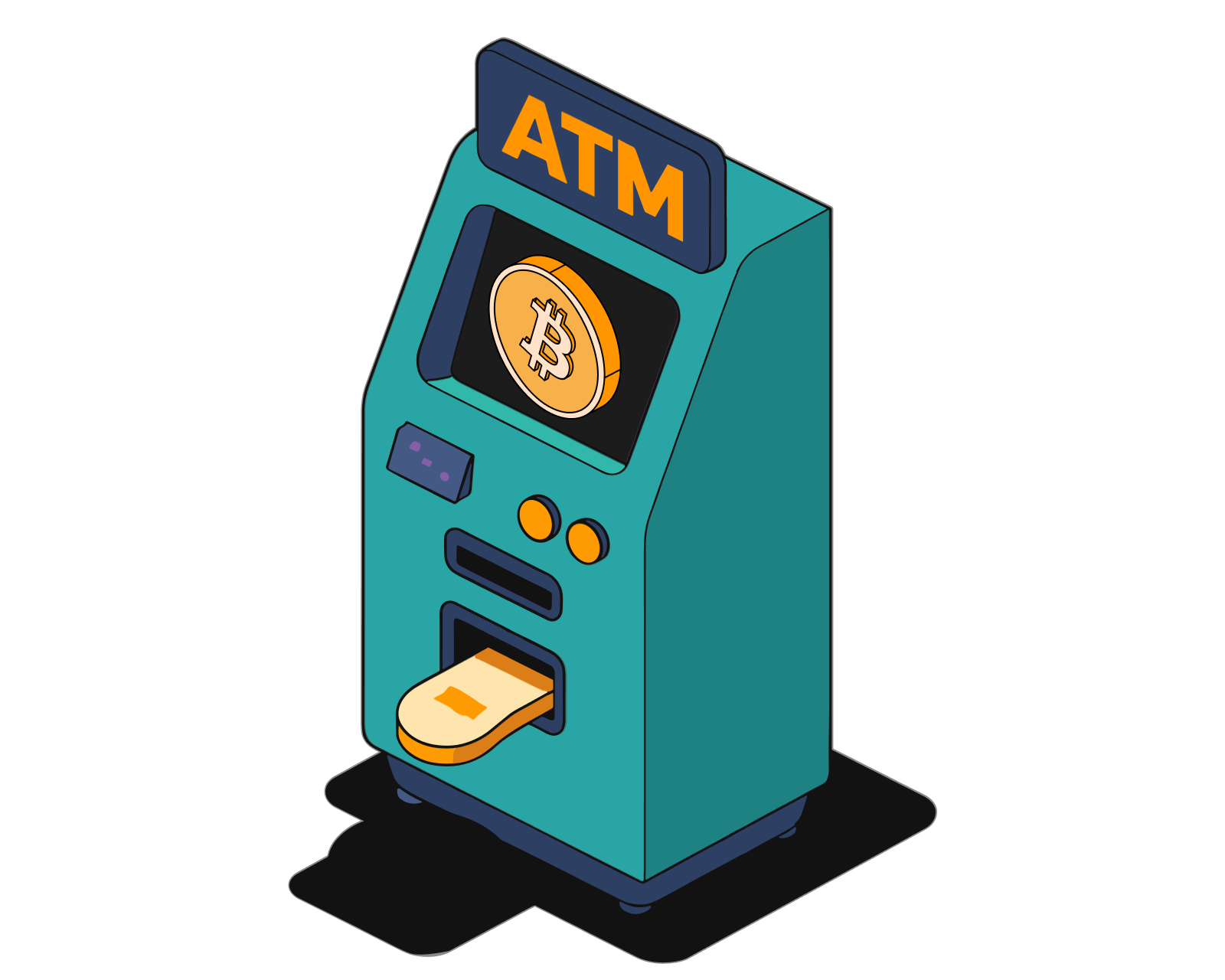
Crypto Tax Guide 2026
From Bitcoin to DeFi, NFTs, and staking rewards, every crypto transaction can create tax obligations. This guide explains global crypto tax rules, taxable events, and strategies to reduce liabilities.

Crypto Tax Guide 2026
From Bitcoin to DeFi, NFTs, and staking rewards, every crypto transaction can create tax obligations. This guide explains global crypto tax rules, taxable events, and strategies to reduce liabilities.

Cryptocurrency taxation in the UK
Get an overview of tax law as it applies to cryptocurrency in the United Kingdom.

Cryptocurrency taxation in the UK
Get an overview of tax law as it applies to cryptocurrency in the United Kingdom.

Cryptocurrency taxation in Germany
Get an overview of tax law as it applies to cryptocurrency in Germany.

Cryptocurrency taxation in Germany
Get an overview of tax law as it applies to cryptocurrency in Germany.

Crypto Taxes in the U.S.: Complete 2026 Guide
The IRS treats cryptocurrency as property, meaning every trade, sale, or income event is taxable. This guide explains IRS rules, forms, and strategies to report crypto correctly and reduce liabilities.

Crypto Taxes in the U.S.: Complete 2026 Guide
The IRS treats cryptocurrency as property, meaning every trade, sale, or income event is taxable. This guide explains IRS rules, forms, and strategies to report crypto correctly and reduce liabilities.

Canada Crypto Taxes in 2026: What the CRA Expects
A clear guide to how the CRA treats cryptocurrency as property, when gains are taxable, and how staking, mining, NFTs, and cross-border holdings should be reported to the CRA.

Canada Crypto Taxes in 2026: What the CRA Expects
A clear guide to how the CRA treats cryptocurrency as property, when gains are taxable, and how staking, mining, NFTs, and cross-border holdings should be reported to the CRA.

NFT Tax Guide 2026
NFTs create unique tax obligations for creators, collectors, and investors. This guide explains how NFTs are taxed worldwide, covering sales, royalties, staking, donations, and reporting requirements.

NFT Tax Guide 2026
NFTs create unique tax obligations for creators, collectors, and investors. This guide explains how NFTs are taxed worldwide, covering sales, royalties, staking, donations, and reporting requirements.

Crypto Airdrop Tax Guide 2026
Cryptocurrency airdrops may feel like free money, but tax authorities treat them as taxable income. This guide explains IRS rules, global tax treatment, reporting forms, and strategies to reduce liabilities.

Crypto Airdrop Tax Guide 2026
Cryptocurrency airdrops may feel like free money, but tax authorities treat them as taxable income. This guide explains IRS rules, global tax treatment, reporting forms, and strategies to reduce liabilities.
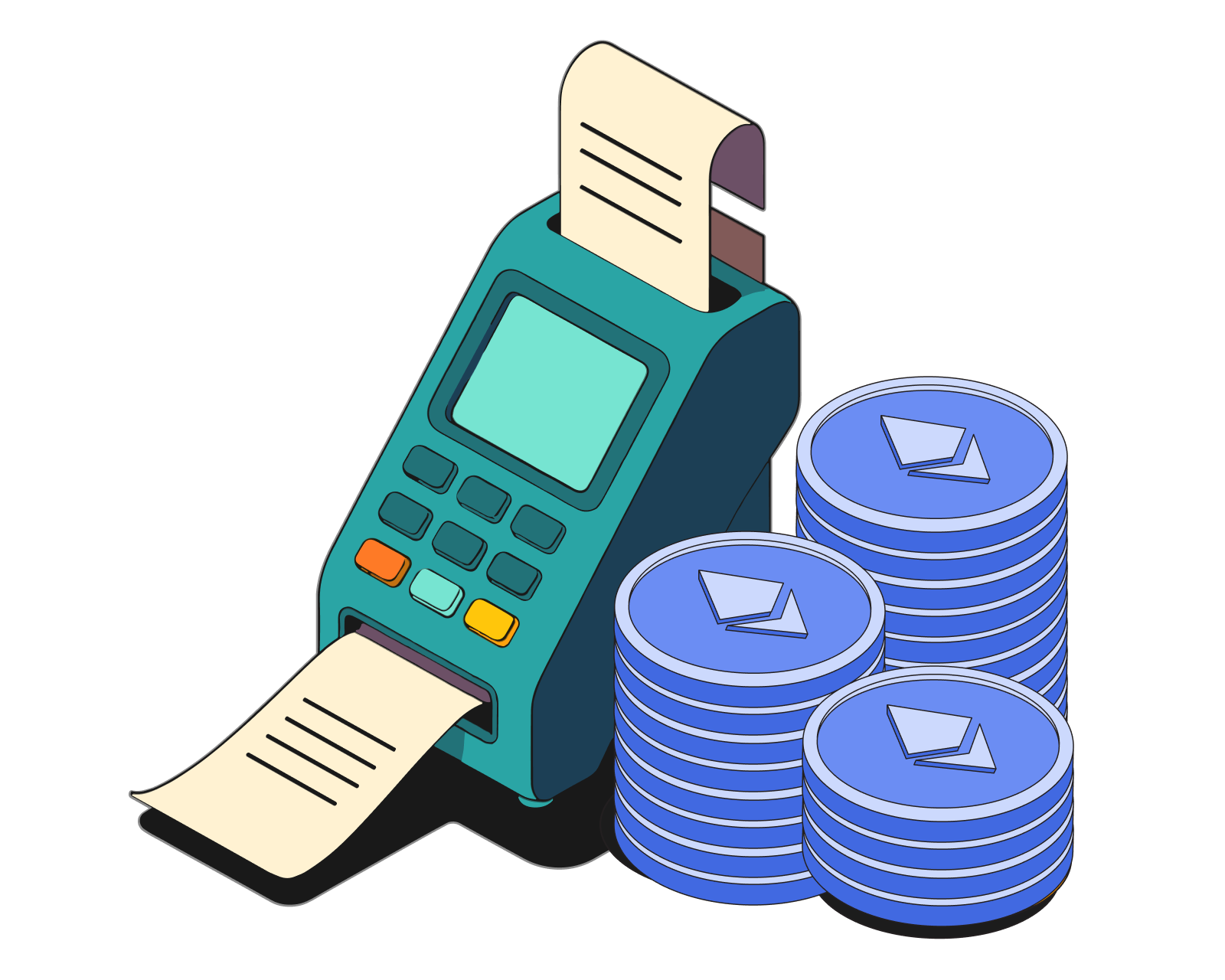
ICO Taxation Explained: Global 2026 Guide
ICOs create unique tax obligations for investors, traders, and founders. This guide explains how ICOs are taxed worldwide, covering utility vs. security tokens, taxable events, cross-border compliance, and reporting strategies.

ICO Taxation Explained: Global 2026 Guide
ICOs create unique tax obligations for investors, traders, and founders. This guide explains how ICOs are taxed worldwide, covering utility vs. security tokens, taxable events, cross-border compliance, and reporting strategies.

Bitcoin Mining Tax Reporting Guide 2026
Bitcoin mining rewards are taxable as ordinary income when received, with additional capital gains when sold. This guide explains global tax rules, reporting requirements, deductible expenses, and compliance strategies.

Bitcoin Mining Tax Reporting Guide 2026
Bitcoin mining rewards are taxable as ordinary income when received, with additional capital gains when sold. This guide explains global tax rules, reporting requirements, deductible expenses, and compliance strategies.
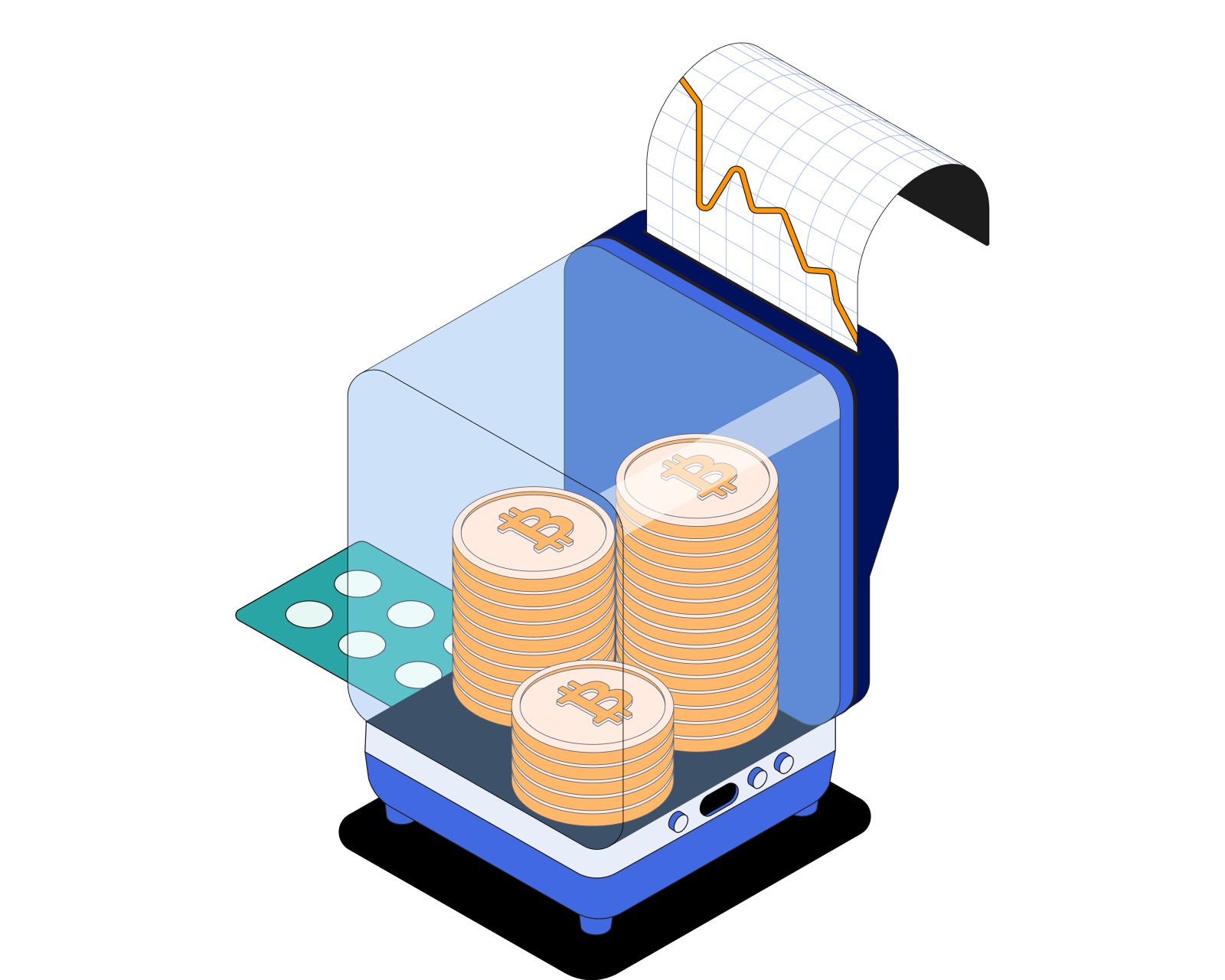
Staking Income Tax Reporting Guide 2026
Staking rewards are taxable in most jurisdictions and must be reported correctly. This guide explains IRS, CRA, HMRC, and ATO rules for staking income, covering taxable events, fair market value tracking, and compliance strategies.

Staking Income Tax Reporting Guide 2026
Staking rewards are taxable in most jurisdictions and must be reported correctly. This guide explains IRS, CRA, HMRC, and ATO rules for staking income, covering taxable events, fair market value tracking, and compliance strategies.
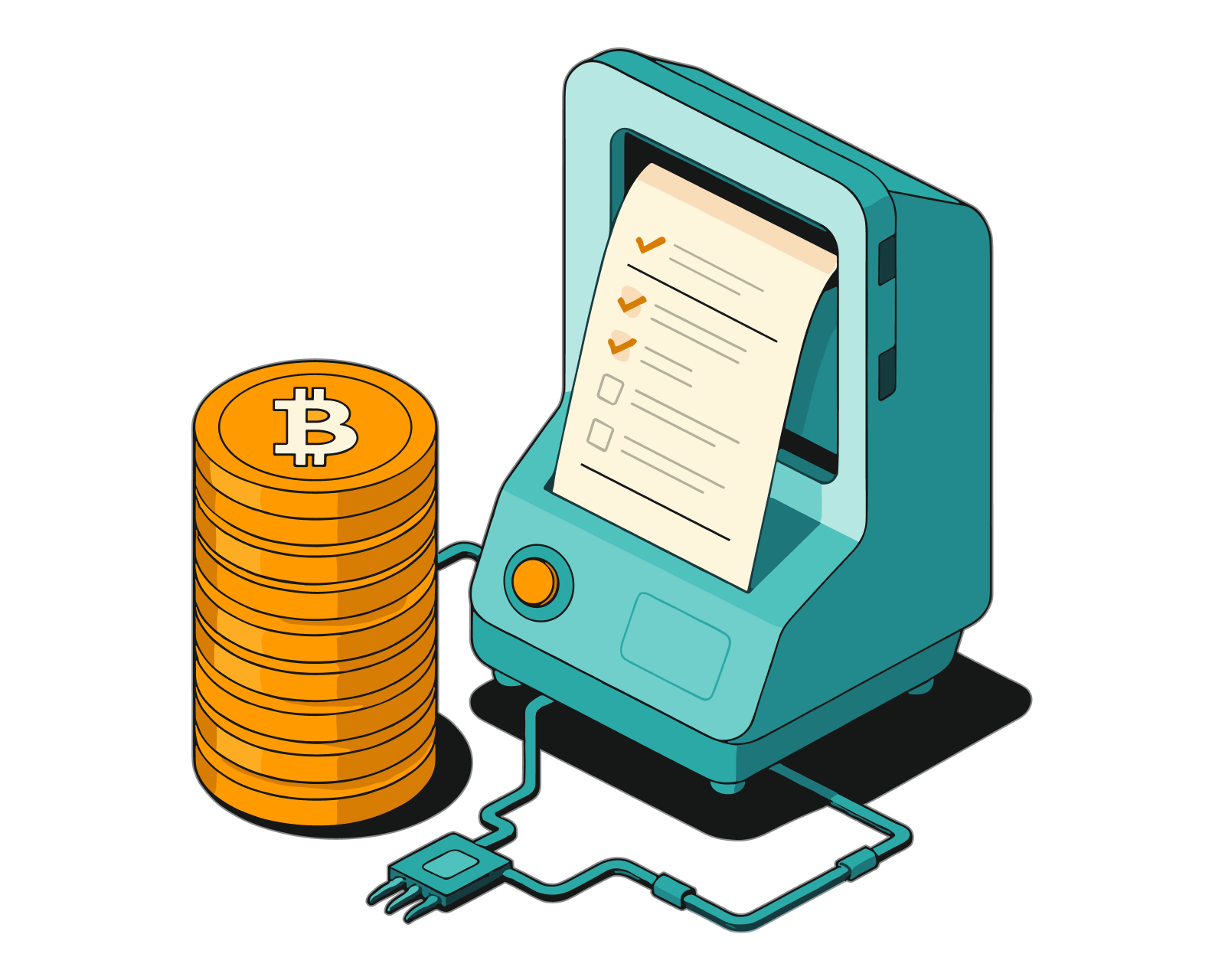
Yield Farming Tax Reporting Guide 2026
Yield farming rewards are taxable income in most jurisdictions. This guide explains how to classify DeFi rewards, track fair market value, calculate capital gains, and report yield farming income correctly.

Yield Farming Tax Reporting Guide 2026
Yield farming rewards are taxable income in most jurisdictions. This guide explains how to classify DeFi rewards, track fair market value, calculate capital gains, and report yield farming income correctly.
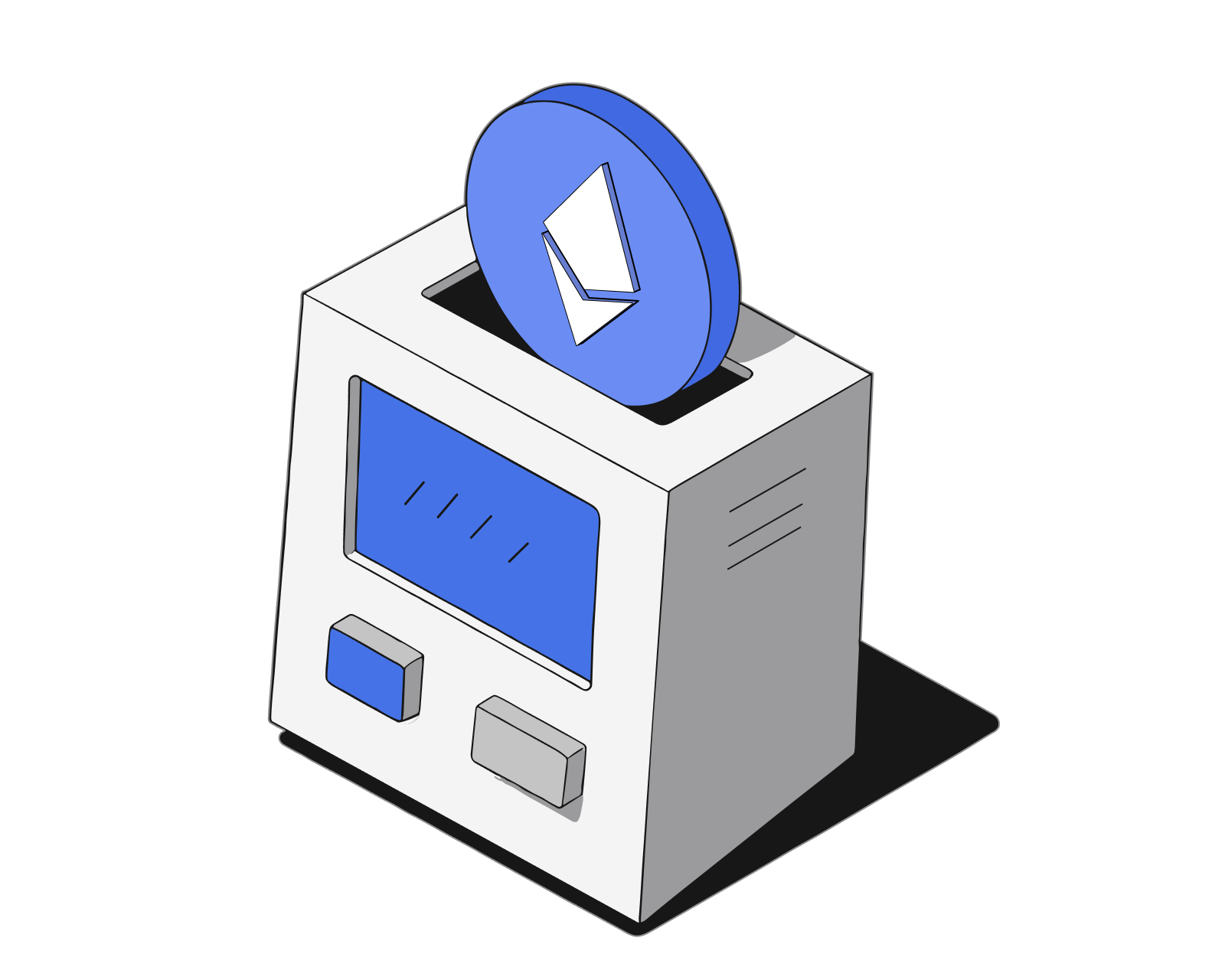
What is staking?
Learn about the power of staking.

What is staking?
Learn about the power of staking.

What is Bitcoin mining?
Learn why the process of minting new bitcoins, known as 'Bitcoin mining,' is in some ways similar to the process of extracting precious metals from the earth.

What is Bitcoin mining?
Learn why the process of minting new bitcoins, known as 'Bitcoin mining,' is in some ways similar to the process of extracting precious metals from the earth.

What is an airdrop?
Airdrops are very popular in crypto. Find out what airdrops are, why they are used, and some well known examples.

What is an airdrop?
Airdrops are very popular in crypto. Find out what airdrops are, why they are used, and some well known examples.

What is yield farming?
Learn what yield farming is, how it works, different types, and more.

What is yield farming?
Learn what yield farming is, how it works, different types, and more.

What is crypto lending?
Lending is a foundational activity in any financial system. Learn more about it.

What is crypto lending?
Lending is a foundational activity in any financial system. Learn more about it.

What is DeFi?
Learn what makes decentralized finance (DeFi) apps work and how they compare to traditional financial products.

What is DeFi?
Learn what makes decentralized finance (DeFi) apps work and how they compare to traditional financial products.

What are NFTs?
Learn about NFTs, how they work, examples of prominent NFTs, and much more.

What are NFTs?
Learn about NFTs, how they work, examples of prominent NFTs, and much more.
STAY AHEAD IN CRYPTO
Stay ahead in crypto with our weekly newsletter delivering the insights that matter most
Weekly crypto news, curated for you
Actionable insights and educational tips
Updates on products fueling economic freedom
No spam. Unsubscribe anytime.
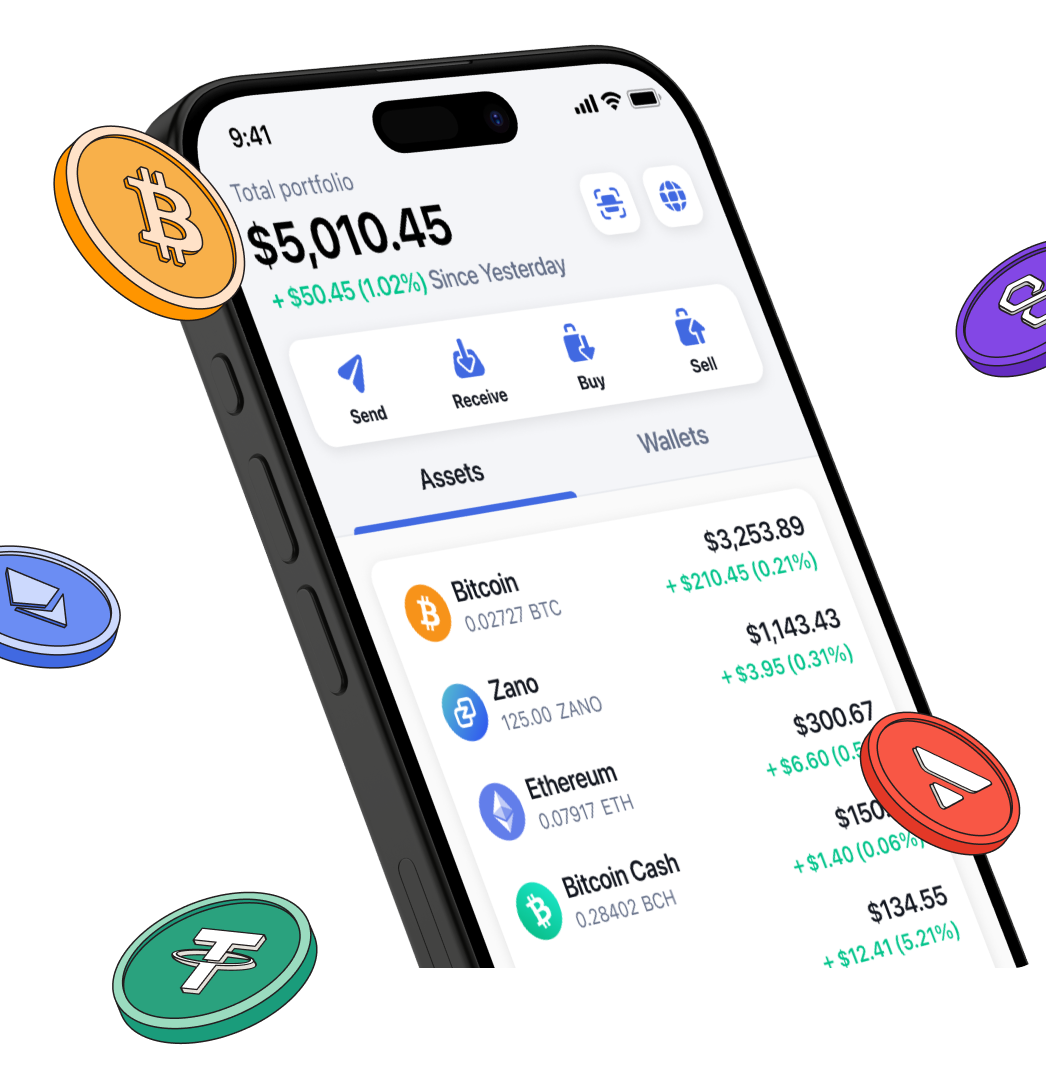
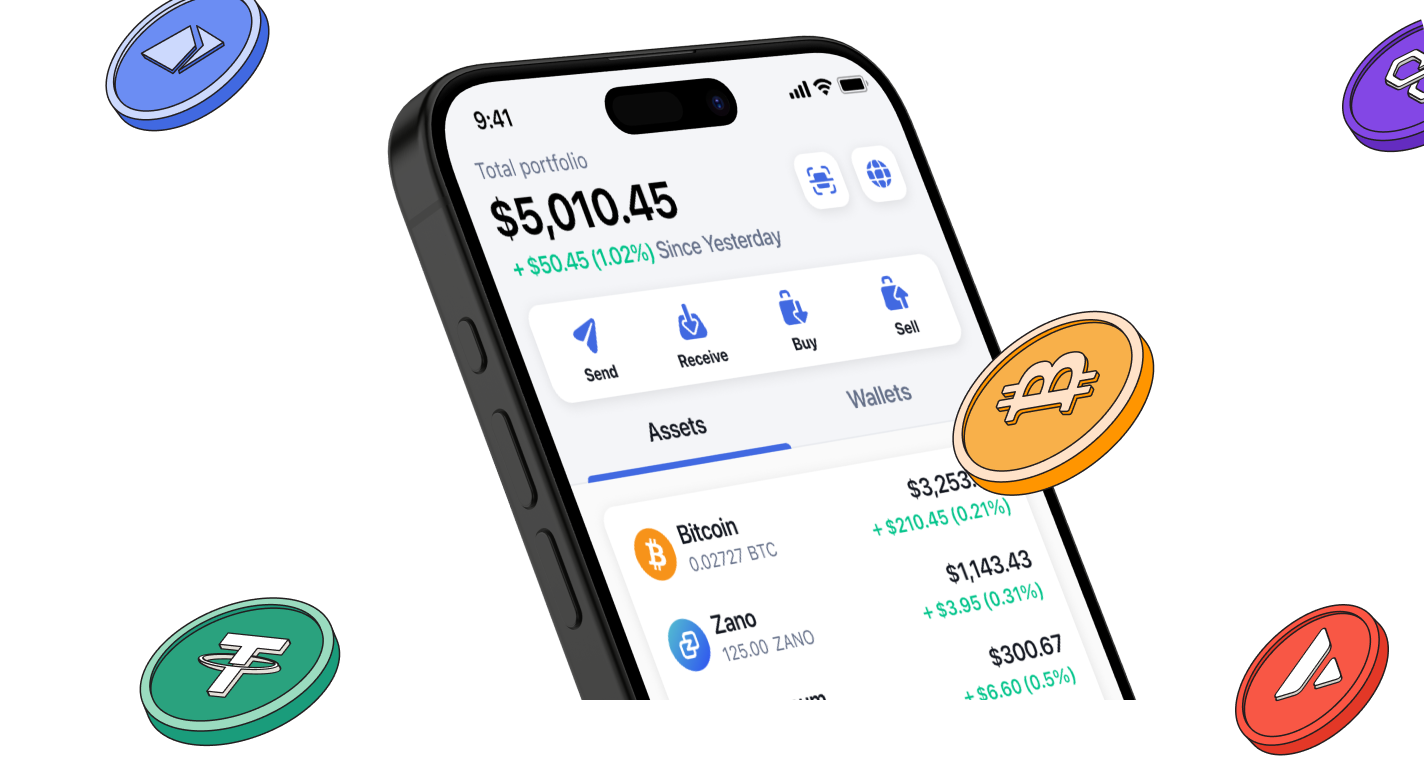
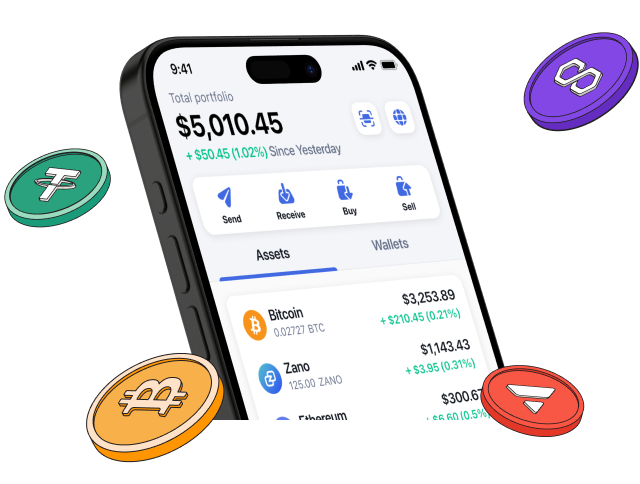
Start investing safely with the Bitcoin.com Wallet
Over wallets created so far
Everything you need to buy, sell, trade, and invest your Bitcoin and cryptocurrency securely

© 2026 Saint Bitts LLC Bitcoin.com. All rights reserved


